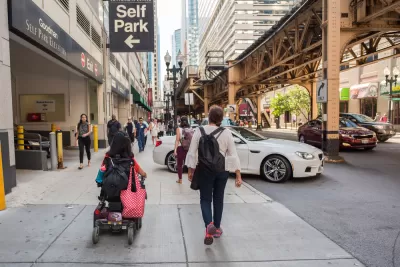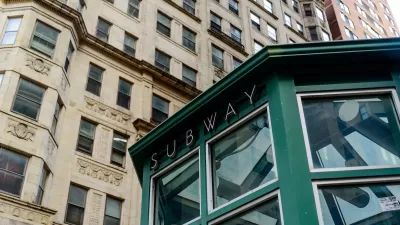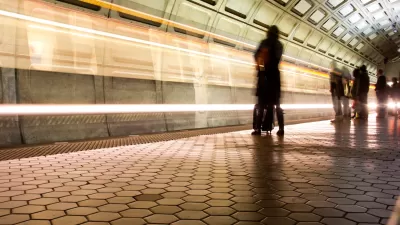Inadequate infrastructure disproportionately harms people with mobility challenges who can't or don't drive, but their needs closely mirror those of all pedestrians.

A study from Disability Rights Washington that interviewed people with mobility challenges "found that respondents 'overwhelmingly' cited 'the poor condition or absence of sidewalks' as the biggest barrier to getting where they needed to go, followed closely by problems with curb cuts, crosswalks and intersections." Kea Wilson writes that the requests made by the study's respondents "closely resemble the demands of sustainable transportation advocates on the whole." These include "[f]requent and reliable fixed-route transit; zoning changes to make a range of accessible housing options abundant in well-connected neighborhoods; and a revamped planning processes to center the needs of non-drivers."
While the cost of poor infrastructure is disproportionately high for people with mobility challenges, "insufficient infrastructure" harms more than just people with disabilities. "Focusing on non-drivers also allows us to advocate for better transportation access for people who may not be disabled, but who would benefit from better transit and active transportation infrastructure," says Anna Zivarts, director of the Disability Mobility Initiative and a lead author of the report. "Engaging deeply with the experiences of people with disabilities like the ones catalogued in this report is a good starting point for agencies who want to do better by all their residents. But the report authors stress that action is what matters."
The report outlines some key recommendations, including more robust pedestrian networks, more accessible and reliable public transit, incentives for accessible housing near transit and dense urban areas, and legal requirements for inclusion and access.
FULL STORY: Why We Can’t Afford to Ignore the Needs of Non-Drivers With Disabilities

Planetizen Federal Action Tracker
A weekly monitor of how Trump’s orders and actions are impacting planners and planning in America.

Maui's Vacation Rental Debate Turns Ugly
Verbal attacks, misinformation campaigns and fistfights plague a high-stakes debate to convert thousands of vacation rentals into long-term housing.

San Francisco Suspends Traffic Calming Amidst Record Deaths
Citing “a challenging fiscal landscape,” the city will cease the program on the heels of 42 traffic deaths, including 24 pedestrians.

Defunct Pittsburgh Power Plant to Become Residential Tower
A decommissioned steam heat plant will be redeveloped into almost 100 affordable housing units.

Trump Prompts Restructuring of Transportation Research Board in “Unprecedented Overreach”
The TRB has eliminated more than half of its committees including those focused on climate, equity, and cities.

Amtrak Rolls Out New Orleans to Alabama “Mardi Gras” Train
The new service will operate morning and evening departures between Mobile and New Orleans.
Urban Design for Planners 1: Software Tools
This six-course series explores essential urban design concepts using open source software and equips planners with the tools they need to participate fully in the urban design process.
Planning for Universal Design
Learn the tools for implementing Universal Design in planning regulations.
Heyer Gruel & Associates PA
JM Goldson LLC
Custer County Colorado
City of Camden Redevelopment Agency
City of Astoria
Transportation Research & Education Center (TREC) at Portland State University
Jefferson Parish Government
Camden Redevelopment Agency
City of Claremont





























